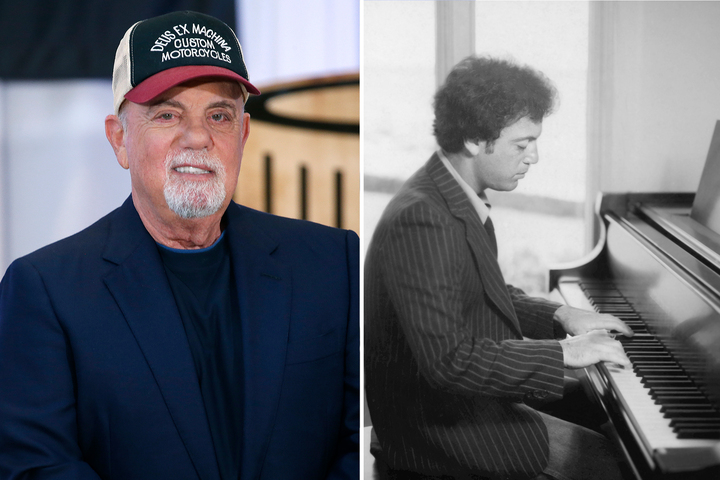Normally, if you see someone’s four wives all speaking about them on TV, it’s a safe bet you’re watching a “Dateline” murder mystery.
So it’s astonishing to witness all three of Billy Joel’s exes appear as well as his current wife in the documentary “And So It Goes,” the second episode of which premieres Friday at 8 p.m. on HBO.
Heck, even his former bandmate Jon Small is a frequent voice in the film. Small was married to Elizabeth Weber when the Piano Man and Weber fell in love.
The fallout from that triangle led Joel to attempt suicide, and he says he felt like a “homewrecker.” But Small “finally got over it” — and even went on to direct the music video for “Uptown Girl.”
I cannot account for his personal interactions and how he’s still on good terms with all these people, but it says a lot about the man. Forgiveness is complicated.
And so is self-examination. But Joel, who has an inherent likability, seems to be well-practiced in the art.
Not that he didn’t give the women in his life agita. Much of his marital strife was fueled by alcohol abuse, and much of that was well documented in the press over the years.
“Some of the stupid stuff I did, that’s painful to talk about,” the 76-year-old recently told People magazine, adding that directors Susan Lacy and Jessica Levin “asked me for some thematic guidance. I said, ‘Just tell the truth.’”
What’s interesting is not just his story but the way he tells it, and the way he let the filmmakers have free rein. Lacy said they were given “complete and utter independence” by the singer-songwriter.
Unlike with so many stars, there’s no myth-building at play. There’s no artifice.
As told in the documentary, his remarkable life can be summed up by the opening anecdote. Joel, who grew up in Hicksville, Long Island, recalls working on an oyster boat as a young man. He’d look up a sprawling mansion and sneer at the “rich bastards” who lived there.
“Well, I own that house now,” he said.
It doesn’t come off as an arrogant mic drop, but rather a “pinch me” moment.
And while he famously has a song called “Angry Young Man,” it’s the fact that he remained a man of the people that’s been the key to his success.
He is not, as Bruce Springsteen notes in the film, “an angry activist man. He never directly goes there. Which is part of why the material hasn’t dated.”
“Say Goodbye to Hollywood” was written when Joel and Weber were living in California — and he realized that the Empire State was a better personality fit.
Relieved to be back, he literally wrote “New York State of Mind” while on a Greyhound bus heading to Highland Falls, where Weber had found them a home.
With “Goodnight Saigon,” he wove a beautiful narrative through the tales of his friends who had returned from Vietnam.
“Lullaby” was written for his daughter Alex Ray Joel as he was splitting with second wife Christie Brinkley.
“Piano Man” is rightfully praised in the documentary by rapper Nas as a “mirror facing the mirror.”
There’s themes of love, loss and searching for his absentee father. Joel found him living in “Vienna.”
But he has never truly told people how to think — a rarity these days.
As critic Steven Hyden remarks in the film. “He writes about people. Not causes or concepts.”
Joel has said he knows people don’t want to hear him on his soap box.
Appearing on “Club Random,” he recently told Bill Maher he has no time for woke scolds.
“On the other hand, I’m always trying to find out the other point of view. What’s, you know, not my point of view — somebody else’s point of view,” Joel told Maher. “OK, I’d like to understand why they think that way.”
It’s obvious why people connect with the guy. He’s one of us, only with six Grammies and a spot in the Rock ’n’ Roll Hall of Fame.
The father-of-three was recently diagnosed with normal pressure hydrocephalus, a brain disorder that causes, among other things, issues with cognition and balance. This week, he told Maher that he “feels good” save for his balance: “It’s like being on a boat.”
He also promised that he isn’t done yet.
Music to my ears.








